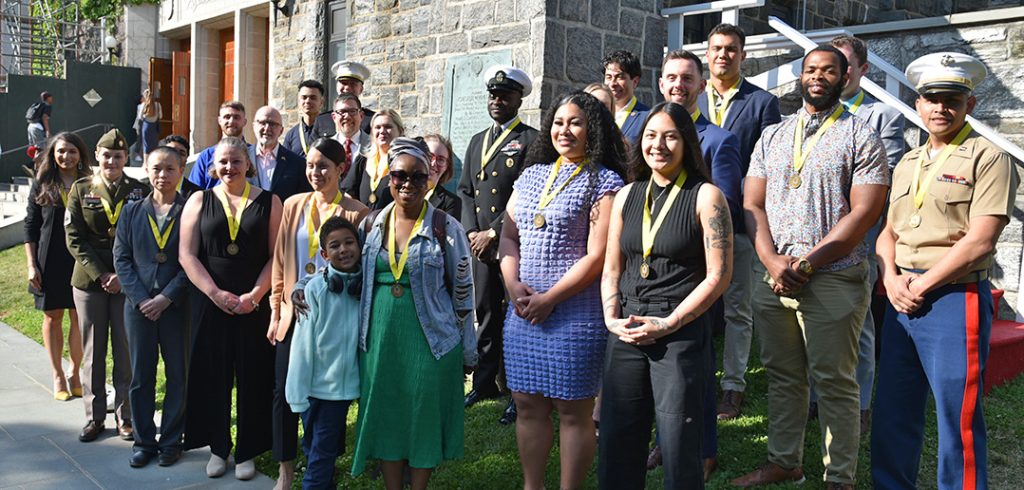Both changes, taking effect Aug. 1, ensure that eligible beneficiaries will always have their entire tuition covered at Fordham, as they do now, and will never have to worry about the University running out of seats for them.
The changes “underscore Fordham’s commitment to serving those who serve our country,” said Andrea Marais, Fordham’s director of military and veteran higher education, engagement, and transition.
Eliminating Worry for Veterans
The cap removals are expected to clear up confusion about Fordham’s support for student veterans. For years, the University has covered 100% of tuition and fees for eligible Yellow Ribbon beneficiaries, who also receive a government stipend for books and living expenses.
But service members may never find out about these benefits. Checking out Fordham’s Yellow Ribbon program on the government’s website, they sometimes give up after seeing the caps on tuition coverage and enrollment—even though neither limit has ever been reached.
“Some people may be deterred by the cap, not realizing that our tuition falls below it,” Marais said. “And the posted limit on applicants may sow doubt as well, since there’s no way to know whether the limit has been reached. This announcement eliminates all of that uncertainty.”
Yellow Ribbon Program + G.I. Bill = Full Tuition Coverage
Through the Yellow Ribbon Program, the government partners with private universities to give added funding to veterans who qualify for the full tuition amount ($27,120 per year) offered under the Post-9/11 G.I. Bill.
Fordham’s tuition benefit cap was so high that the University never needed to turn away any eligible veteran—and with the cap gone, it won’t ever need to. That’s good news for service members dealing with financial jitters, said Matthew Butler, PCS ’16, senior director of Fordham’s Office of Military and Veterans Services.
“Veterans aren’t in the position to take any chances” when considering their college costs as they’re transitioning out of the military, he said, also noting that Yellow Ribbon beneficiaries at Fordham receive one of the highest housing allowances in the country.
Michael Condit, a former Army infantryman and recruiter who just completed his bachelor’s degree in economics at Fordham’s School of Professional and Continuing Studies, said veterans may also be looking for a reason to rule themselves out, thinking “oh, I’m not a college person.”
“When you hear that there are caps and restrictions, you might [think], ‘Well, I don’t want to get in line just to be told ‘no,’” he said.
Supportive Community
Assimilating into Fordham after five years of active duty in the Army was “a great experience,” said Miguel Angel-Sandoval, a senior majoring in Real Estate with a minor in economics in the School of Professional and Continuing Studies and a candidate in Fordham’s ROTC program. He’ll be graduating in May with a job already secured at RSM real estate consulting agency.
He was welcomed by members of Fordham’s Student Veterans of America chapter and others who helped erase any feeling of discomfort at being an older student. Coming to Fordham “was the best decision I’ve ever made,” he said.
To learn more about military benefits and opportunities at Fordham, please contact the Fordham Veterans Center at [email protected] or call (212) 636-6433.


